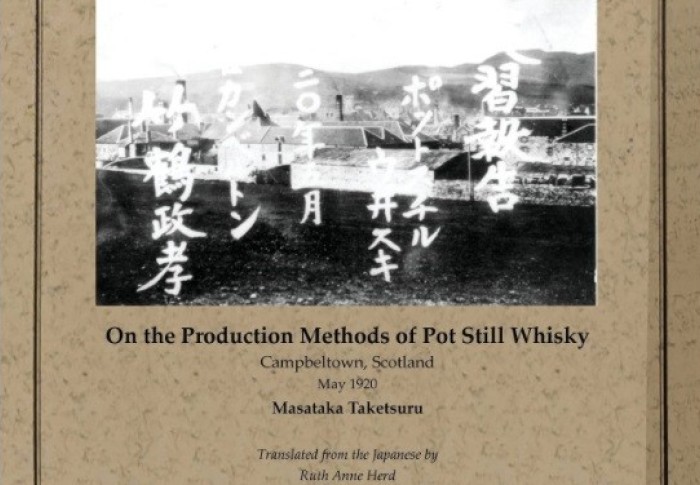Ruth Herd translates work by 'the father of Japanese whisky'

Midwinter 1920: a 25 year-old Masataka Taketsuru, and his new wife Rita, arrive in Campbeltown, a small town on the west coast of Scotland.
So begins the story behind On the Production Methods of Pot Still Whisky penned by Masataka Taketsuru, founder of Nikka Whisky.
This work, previously available only in Japanese, has now been translated into English by the CLCC's Dr Ruth Herd, in collaboration with Professor Alan G. Wolstenholme.
Sent to Scotland by his employer, spirit makers Settsu Shuzo, to learn how to produce authentic Scotch whisky, Taketsuru first took courses in chemistry at the University of Glasgow and the Royal Technical College (later to become Strathclyde University). Towards the end of 1919, he secured an invitation to spend four months as an apprentice at the Hazelburn Distillery in Campbeltown, arriving there with his new Scottish wife, Rita, shortly after their wedding in the January of the following year. Compiled under the guidance of the Hazelburn’s chief technician, Peter Margach Innes, Taketsuru’s notebooks, which set out in meticulous detail all he had learned, later became the cornerstone of the nascent Japanese whisky industry.
Dr Ruth Herd is the Co-ordinator of Mandarin Chinese in the Centre for Languages, Culture and Communication at Imperial College London. She holds a D.Phil. in Oriental Studies from the University of Oxford and two BA degrees, one in Chinese and one in Japanese, both from the School of Oriental and African Studies, University of London. Her research interests include drama, literature and culture in both China and Japan.
As part of the CLCC Research Seminar Series 2021-22, Dr Herd will be giving a seminar on the subject of this translation on Thursday 9th June at 14:45 BST (22:34 JST).
Register for 'On the Production Methods of Pot-Still Whisky' via eventbrite.
Article text (excluding photos or graphics) © Imperial College London.
Photos and graphics subject to third party copyright used with permission or © Imperial College London.
Reporter
Ms Cleo Bowen
Centre for Languages, Culture and Communication